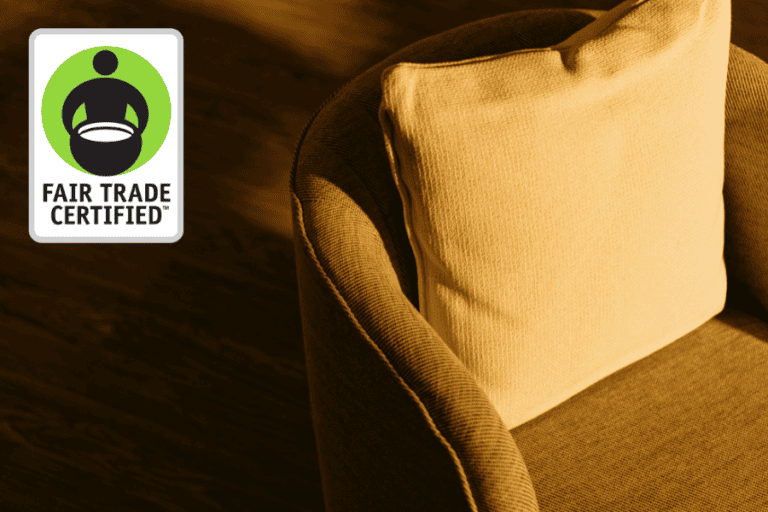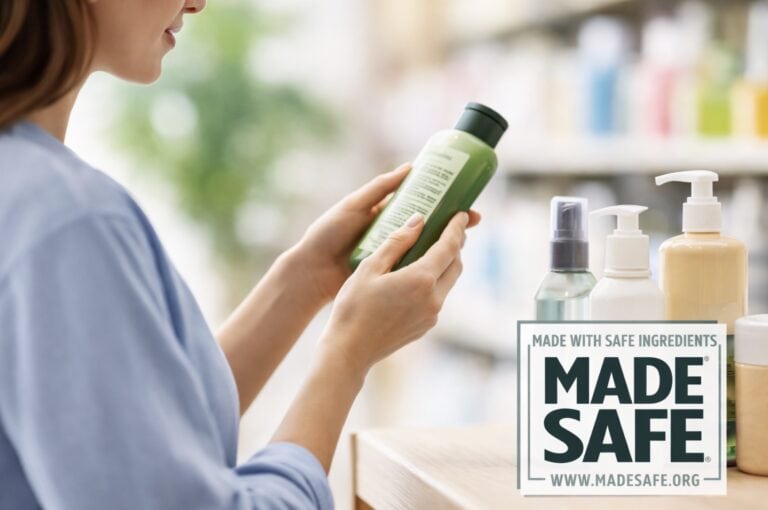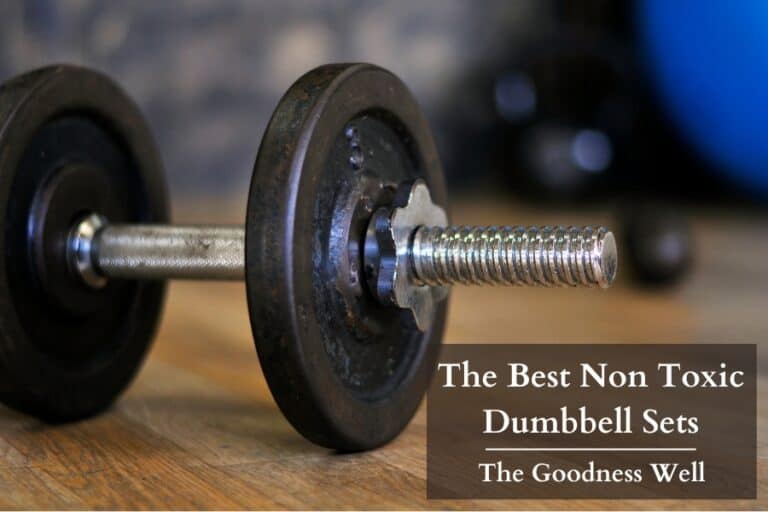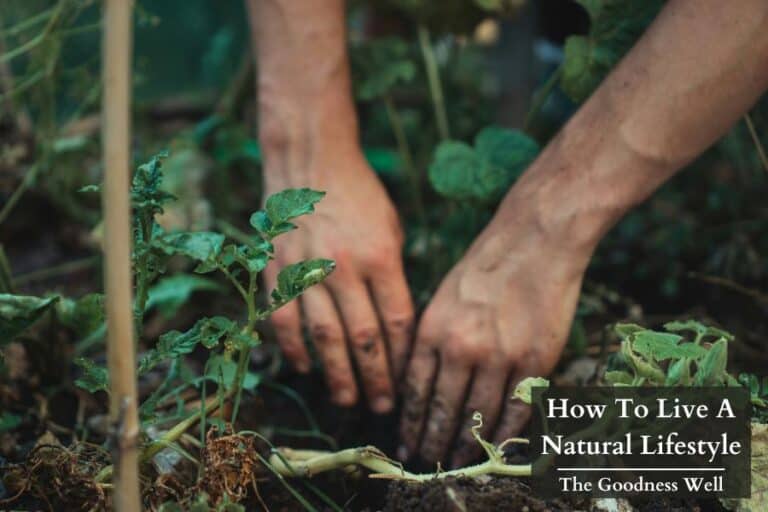The Best Way To Wash Fruits & Veggies (Backed By Science) + Video
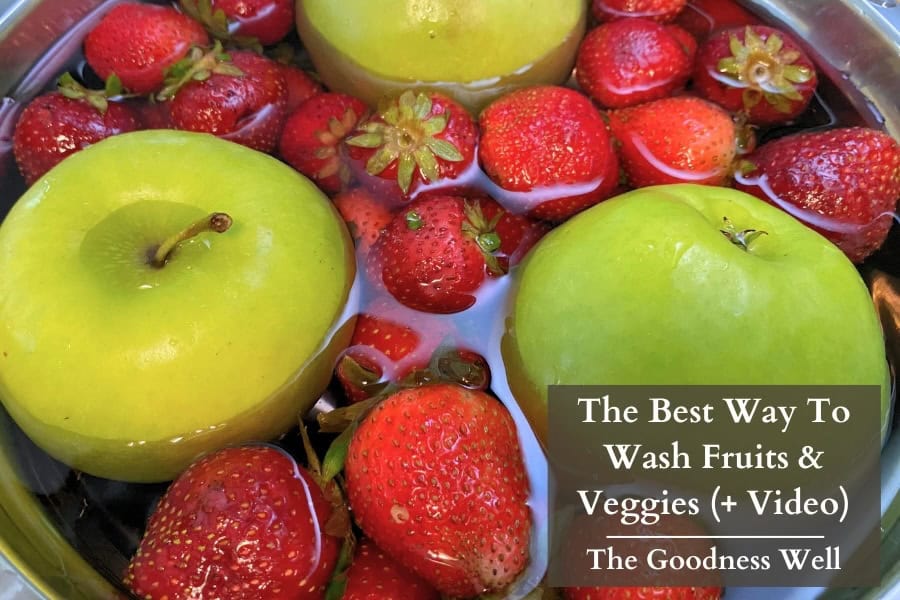
Ok, I’m sure you used to hear your parents tell you, “Wash those fruits before you eat them!”. And they were right! With the dangers of pesticides, bacteria, and other pathogens, you should always wash your produce before you eat it.
But what is exactly the best method? Just rinsing in the sink? Vinegar? Bleach?
Bleach!?
Yes, your produce is washed with bleach in post-harvest sanitation at farms.
However, the technique we use based on this study proves a simple baking soda wash is more effective than all 3 of these methods.
We use this natural method on all of our fruits and vegetables and it works great!
Let me show you how!
Why is Baking Soda Best?
Baking soda is alkaline which reacts with pesticides and causes them to degrade. When the chemical structure of these pesticides breaks down, they wash away much easier.
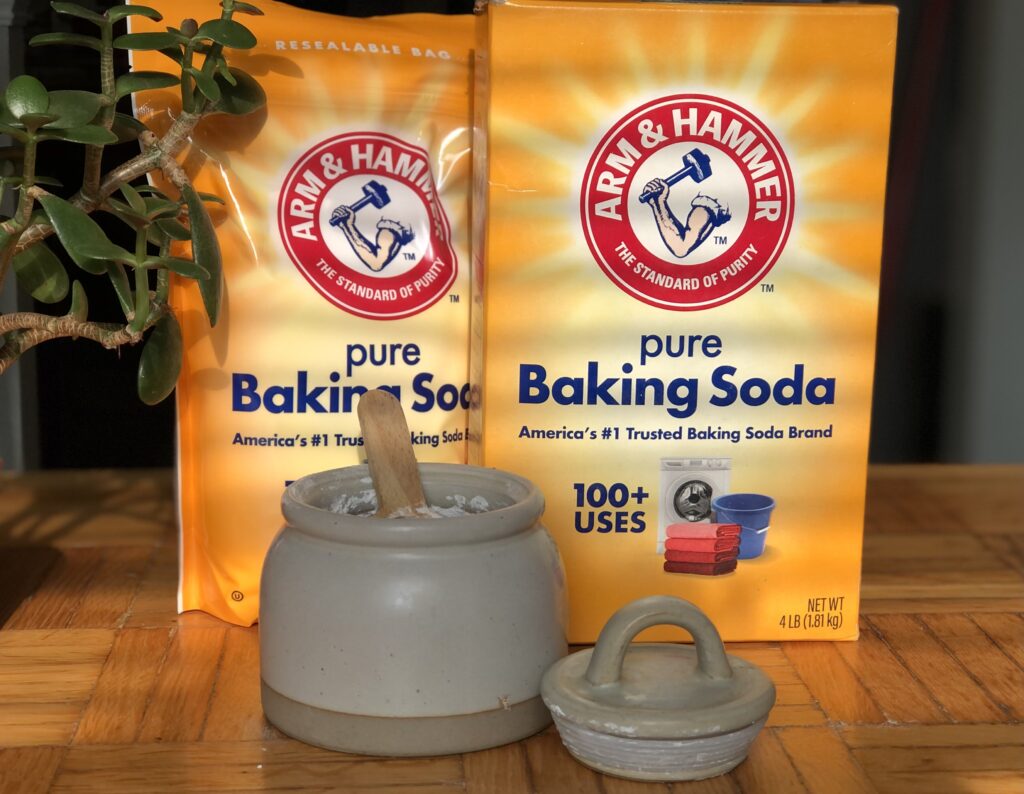
Baking soda is also non-toxic! It doesn’t leave any aftertaste (as long as you don’t overdo it) and is safe for you and your family.
What About Other Cleaning Methods?
- Just Water: While water can remove dirt and some pesticides, it isn’t effective enough to break down most pesticide molecules.
- Vinegar: Vinegar can actually be pretty effective due to its acidity, but overall, it was found that baking soda is the most effective. I’ve also found that vinegar can leave some of my produce tasting a bit like vinegar 🥴. Be careful to not use baking soda and vinegar together, as they cancel each other out, making the solution ineffective.
- Commercial Produce Washes: Yes, a very diluted bleach solution is used on most produce post-harvest which is very effective at removing pathogens and other harmful bacteria but it was still found that baking soda is more effective at breaking down pesticides.
How to Remove Pesticides From Your Produce
In the study, a solution made by mixing 1 tsp of baking soda for every 2 cups of water and soaking your produce in it for 12-15 minutes effectively removes common pesticides.
Items you’ll need:
- Bowl
- Tsp measurement
- 1 cup measurement
- Baking Soda
- Your fruits & vegetables you want to wash!
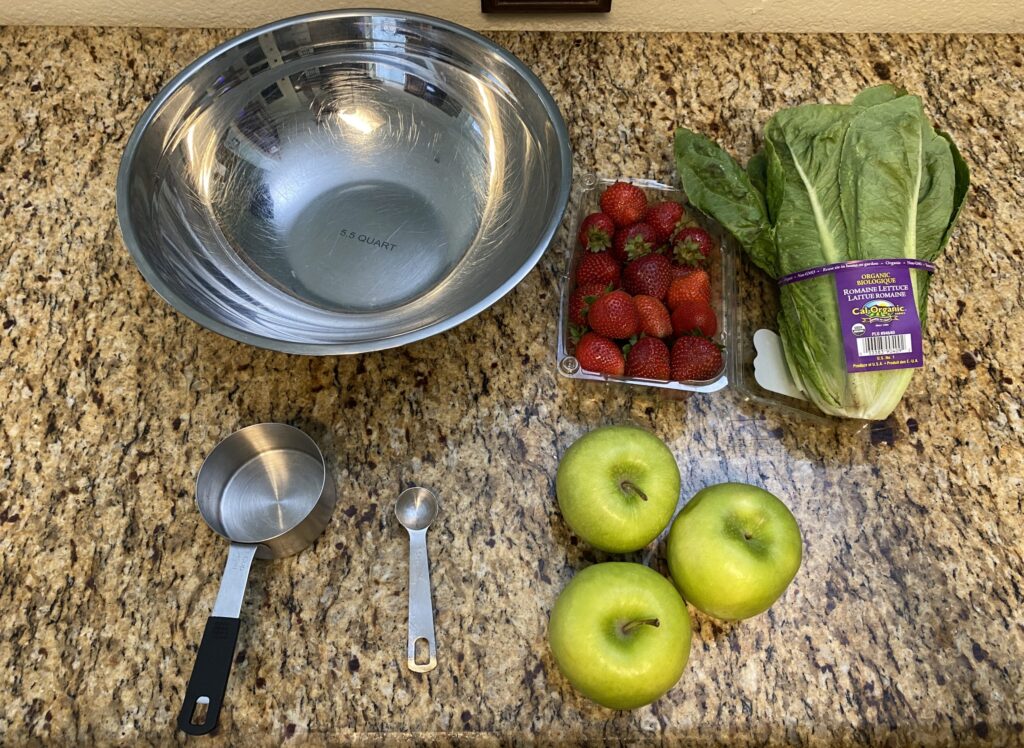
Time needed: 10 minutes
This method of washing fruits/veggies is the most effective according to a study done back in 2017. It will effectively remove most pesticides found on the surface of your produce.
- Place Fruit/Veggies in Bowl
Place your fruits and vegetables in the bowl first to eyeball exactly how much water you will need to fill the bowl with to completely submerge your fruits and veggies
- Take Produce Out & Fill Bowl With Water
Take the produce out of the bowl and begin to fill the bowl cup by cup, noting how many cups it takes to fill the bowl to where you need it to be.
- Add Baking Soda
Based on how many cups you used, add 1 tsp of baking soda per 2 cups of water and stir until the baking soda is completely dissolved.
- Let Sit For 12-15 Minutes
Submerge your fruits and veggies in the solution (you can use the heavy ones to weigh down any that might float to the top) for about 12-15 minutes.
- Rinse With Water
Once they’re ready, give them another good wash under the sink.
- Dry Them
Lastly, don’t forget to dry them! Storing wet produce will cause them to spoil much quicker. If you want to skip the drying step, avoid washing until you are ready to eat them.
Video
This Will Not Remove All Pesticides
A thing to note here is that while this method is the most effective at removing pesticides from the surface, pesticides can still penetrate into the produce, and removing this is nearly impossible.
Remember, while there are surface pesticides that are used on produce to keep insects away, systemic pesticides are also used which are impossible to remove.
Systemic Pesticides

What are systemic pesticides?
Systemic pesticides are sprayed onto the ground and absorbed into the plant’s vascular system, distributing the pesticide through all parts of the plant, from roots to the fruit/vegetables produced. This way when insects go to eat the plant, they die.
And while the levels of pesticides needed to kill these pests have been found to be safe for humans, there are still concerns.
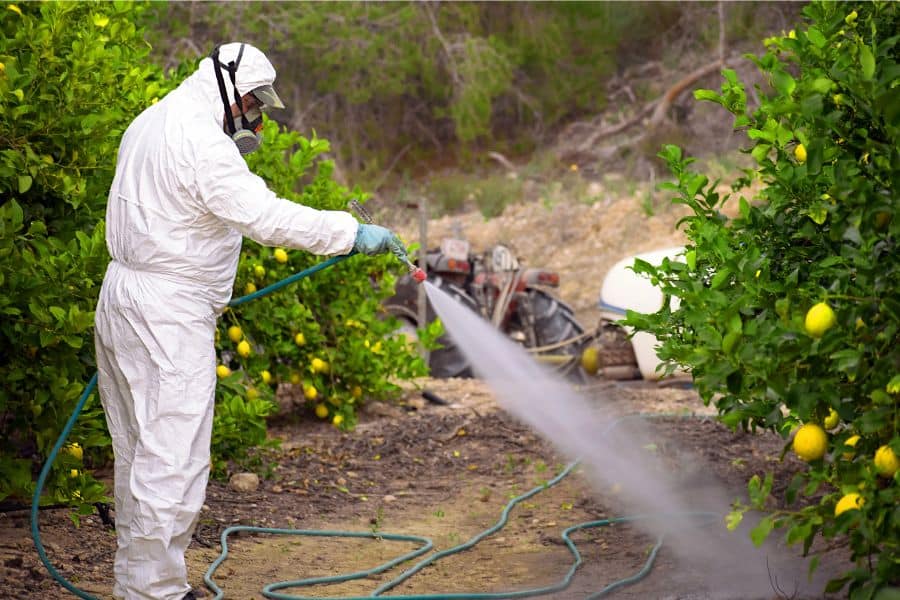
A study in 2019 actually found that the U.S. still uses 85 pesticides that are banned in other countries like Europe and China.
Going into the science and real health risks of pesticides is a deep rabbit hole in itself.
To be safe, we always choose organic whenever possible and encourage others to do the same.
Aside from choosing organic, we have some other tips that will help you avoid pesticides in your produce as well.
Reasons to Choose Organic Whenever Possible
While choosing organic might be a bit more expensive, the benefits outweigh the cost in the end, especially when it comes to your health and the environment.

Here’s a few reasons why:
- No GMOs: While the USDA will tell you Genetically Modified Organisms are not harmful, there aren’t any long-term studies that confirm this. GMO’s are still new to us. For me, I’d prefer my produce to not be “genetically modified”.
- Reduced Exposure to Synthetic Pesticides: Organic farming prohibits synthetic pesticides. Therefore, you reduce your exposure to some of these potentially harmful substances. Organic does use pesticides but they are found to be much safer.
- Eco-Friendly: Organic also keeps synthetic pesticides out of our water, soil, animal habitats, and is much safer for the farmers that work with these chemicals. Overall, using organic contributes to lower pollution and greenhouse gases produced by conventional agriculture.
The benefits of organic farming extend beyond these reasons and overall contributes to a healthier ecosystem, more sustainable food production, and improved public health.
Thanks for reading and leave a comment below with any thoughts!
FAQ
If the choice is either conventional produce contaminated with pesticides or nothing, then the experts agree to still eat your fruits and vegetables. The benefits of consuming them far outweigh the risks of not eating them regularly.
Use cold water. It effectively removes dirt, bacteria, and some pesticides without the risk of wilting or making the produce mushy, which can happen with hot water.
While it’s recommended to wash them just before using them, we have always washed our produce before storing it. The key is to dry them! The problem is that wet produce can spoil faster.

